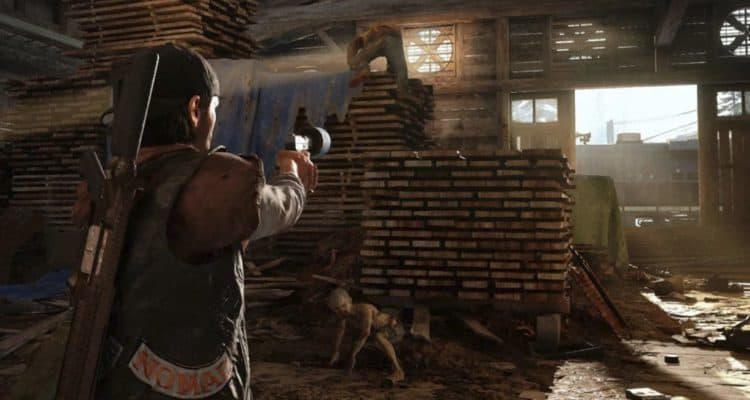
[easyazon_link identifier=”B01GW8XRCG” locale=”US” tag=”tvovermind00a-20″]Days Gone[/easyazon_link] is a survival horror set in a post-apocalyptic open world. In it, players will take on the role of Deacon St. John, an outlaw turned bounty hunter who is struggling to survive in a world that has seen most humans succumb to a horrible pandemic that causes its victims to mutate into monsters called Freakers. Even worse, the pandemic’s effects are not limited to humans, which is why people who are interested in Days Gone should expect infected animals as well.
On the whole, Days Gone is looking rather promising. However, interested individuals might have noticed some serious complaints in very recent times, which are focused on some of the enemies that are set to be included in the survival horror.
What Are People Arguing About In Relation to Days Gone?
In short, recent marketing materials for Days Gone have made it very, very clear that some of the Freakers that interested individuals can expect to encounter in the game were once children. Unsurprisingly, this has caused a fair amount of upset in some of the people who have been following the title. Something that hasn’t been helped by the less than stellar defense mounted by the people behind Days Gone.
First and foremost, most people have a very strong belief that children should be protected. As a result, even if they are fine with shooting hundreds and hundreds of adults in video games, chances are good that most interested individuals would see the act of shooting a child as being much darker in nature. This is the reason that video games often take one or two approaches when it comes to child characters. First, there are some video games that exclude child characters altogether even when that would make no sense whatsoever for their purported settings. Second, there are some video games that have child characters but make them invulnerable to harm, thus preventing their players from engaging in any kind of violence against them.
With that said, it is important to note that different people have different degrees of sensitivity on this particular issue. As a result, there are already video games that have had child zombies, with examples including both Dying Light and Dead Space 2. In some cases, players might even be supportive of such a move because of a strong interest in “realism,” which can be summed up as them seeing child zombies as a logical consequence of zombie apocalypses. Of course, this particular point is undermined by the fact that video games are never 100 percent accurate for the sake of both practicality and entertainment value, meaning that it can ring more than a bit hollow.
Besides these points, it should be mentioned that the people behind Days Gone might not have handled the backlash in the best way. In short, a representative said that once a human has been infected by the pandemic in the Days Gone setting, they should no longer be seen as a human because of the transformation. As a result, when a child becomes a Freaker, they are no longer a child but rather a Freaker and nothing but a Freaker. Essentially, said individual offered an in-setting excuse for an out of setting choice, which is never a persuasive way to make an argument.
Final Thoughts
On the whole, there is no real reason to believe that the fuss being raised at the moment will have a significant impact on the upcoming title. As stated earlier, there have been earlier games with child zombies that were released with no issues in this regard whatsoever, meaning that it seems improbable that something will happen to Days Gone because of it.
However, chances are good that a lot of people aren’t concerned about the likelihood of something being done about Days Gone so much as whether the people behind it were doing something wrong by adding in what amounts to child zombies. Unfortunately, there is no simple and straightforward answer because each of the factions in this argument have good points to make. On the one hand, the inclusion of child zombies can be seen as crossing a line because of how most people believe children should be treated; on the other hand, the other side has a point that different people have different degrees of sensitivity in this regard, meaning that what crosses the line for one person might not be doing so for another.
 Follow Us
Follow Us





